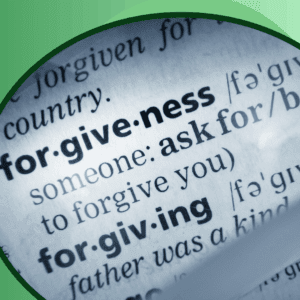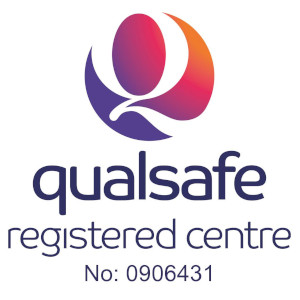Each year on July 7th, we observe Global Forgiveness Day, showing forgiveness to help promote mental health wellbeing. This awareness day is dedicated to the transformative act of forgiveness. This isn’t just about saying “sorry” or “I forgive you”; it’s about emotional freedom, mental clarity, and inner peace.
Forgiveness is deeply connected to mental health. Holding onto resentment, guilt, or unresolved conflict can feel like carrying a heavy emotional backpack, one that grows heavier with time. On Global Forgiveness Day, we’re reminded of the healing that’s possible when we choose to let go.
The Link Between Forgiveness and Mental Health
Forgiveness has a powerful impact on our psychological well-being. When we hold onto anger, bitterness, or blame, our minds and bodies stay in a state of tension. This emotional tension can:
blame, our minds and bodies stay in a state of tension. This emotional tension can:
-
Keep us stuck in a cycle of negative thought patterns
-
Increase stress and weaken our coping mechanisms
-
Heighten feelings of anxiety, depression, and worthlessness
-
Drain emotional energy that could be used for growth and healing
From a mental health perspective, forgiveness isn’t just a kind act, it’s a protective and restorative act. People who practice forgiveness tend to experience:
-
Lower levels of depression and anxiety
-
Greater emotional regulation
-
Higher self-esteem and life satisfaction
-
Improved interpersonal relationships
-
Better overall mental and physical health
Research even shows that forgiveness can reduce cortisol levels and improve heart health. That means forgiveness has real, measurable effects on both emotional and physical well-being.
Forgiving Others – Letting Go of Resentment
Forgiving others doesn’t mean forgetting the pain or excusing harmful behaviour. It means you’re choosing to no longer allow the hurt to control your thoughts, actions, or emotional state, it is showing forgiveness to help promote mental health wellbeing
When we refuse to forgive, we can become consumed by the injustice or betrayal we experienced. This can lead to chronic stress, difficulty trusting others, and persistent rumination.
Forgiveness is about empowerment, not weakness. It’s an act of taking back control over your peace of mind and emotional energy. You’re saying, “This no longer defines me. I’m choosing to move forward.”
Letting go might look like:
-
Having a difficult conversation
-
Writing a letter you don’t send
-
Saying a quiet goodbye to the pain, not the person
-
Acknowledging the hurt but choosing peace over revenge
Forgiveness is a personal process and doesn’t always require reconciliation. It’s about your healing, not the other person’s behaviour.
Self-Forgiveness – Healing from Within
Perhaps the hardest person to forgive is yourself.
We all carry moments we’re not proud of, words we wish we hadn’t said, decisions we regret, or times we feel we failed someone (or ourselves). When left unaddressed, these internal judgments can lead to:
-
Chronic shame
-
Self-doubt and low self-worth
-
Harsh self-criticism
-
Inability to move forward emotionally
Self-forgiveness is about acknowledging the mistake, understanding the context, learning from it, and allowing yourself to grow beyond it.
It doesn’t mean pretending it didn’t happen. It means you believe you’re worthy of healing.
Steps toward self-forgiveness might include:
-
Talking to a therapist
-
Writing a letter of compassion to your past self
-
Practicing daily affirmations like “I am learning, not failing”
-
Replacing punishment with accountability and growth
When we forgive ourselves, we create space for self-compassion, resilience, and healing.
How to Begin the Forgiveness Process
Forgiveness can feel overwhelming, especially when the pain runs deep. But remember: it’s a journey, not a destination. Here are some gentle starting points:
-
Reflect with Honesty
Ask yourself: What hurt am I holding onto? How is it affecting me now? Identifying the source is the first step to healing. -
Name Your Emotions
Whether it’s betrayal, sadness, guilt, or anger—naming what you feel helps you validate and process it. -
Acknowledge the Impact
Forgiveness doesn’t ignore the pain. It honours it, understands it, and then moves forward. -
Choose to Release
When you’re ready, make a conscious decision to let go—for your own well-being, not to let someone off the hook. -
Get Support
You don’t have to do this alone. Talking with a therapist, coach, friend, or joining a support group can make all the difference. -
Be Kind to Yourself
Healing isn’t linear. Some days will feel easier than others. Celebrate the small steps.
Your Peace Is Worth It – Showing Forgiveness to Help Promote Mental Health Wellbeing
Forgiveness isn’t about the past, it’s about your future. It’s about making space for peace, clarity, emotional freedom, and mental strength.
As we honour Global Forgiveness Day, remember that forgiveness is not a one-time act. It’s a daily practice of choosing peace over pain, understanding over judgment, and healing over hurt.
Whether you’re working on forgiving someone else or learning to forgive yourself, know this: you deserve peace. And forgiveness is one of the most powerful tools to get there.
What is mental health first aid training?
Mental health first aid training teaches people to help someone in a mental health crisis. It covers how to spot and understand mental health problems. This training helps you know how to respond well.
What are the core principles of mental health support?
Key principles include listening without judgment and keeping things confidential. It’s also about respecting the person’s choices and being kind. The goal is to create a safe space for support.
How has mental health first aid evolved over time?
It has grown a lot, keeping up with society’s changes. Now, it includes the latest research and methods. This helps tackle many mental health issues effectively.
What are the key objectives and outcomes of mental health first aid training in the workplace?
The main goals are to improve understanding of mental health and reduce stigma. It aims to teach people to support others in need. This includes spotting problems and helping them get professional help.
Why is mental health first aid important in today’s society?
It’s vital because more people are talking about mental health. The training helps individuals support each other. This reduces the load on healthcare and boosts overall well-being.
What are the essential components of mental health first aid training?
It teaches how to spot mental health issues and respond. You learn to communicate well and have supportive conversations. This helps provide the right support and guidance.
Who should consider mental health first aid training in the workplace?
Many people can benefit, like healthcare workers and teachers. It’s also good for the general public. It helps build a more caring society and improves work environments.
What is the ALGEE action plan in mental health support?
ALGEE is a key plan for mental health first aid. It stands for Assess, Listen, Give reassurance, Encourage help, and Encourage self-help. It guides how to support people in different mental health situations.
What common mental health conditions are covered in the training?
The training covers many conditions, like depression and anxiety. You learn to spot signs and how to help. This includes guiding them to professional help.
How can mental health first aid be implemented in the workplace?
Start by making your workplace supportive. Develop policies and train staff. This helps create a caring environment and improves employee well-being.
What are the benefits of becoming a mental health first aider?
Being a mental health first aider boosts your empathy and communication. It lets you help others and grow personally. You gain the skills to support those in need.
What is the certification process and training requirements for mental health first aid?
To get certified, you need to complete a detailed training. It covers the basics and practical skills. The training includes both theory and practice, with ongoing checks to keep your certification.
Can you provide real-world examples and success stories of mental health first aid in action?
Yes, there are many stories of mental health first aid making a difference. These come from schools, workplaces, and community groups. Trained first aiders have helped people get the support they need, creating a more caring world.
Why become trained in Mental Health First Aid? Showing Forgiveness to Help Promote Mental Health Wellbeing
Attending a mental health course will help you to realise just how widespread the problem can be for individuals who are affected by poor mental health, as well as create a new perspective on all of the ways it can affect their lives. Knowing more about poor mental will not only reduce stigma but get people talking without judgement. Talking more reduces the signs and symptoms but reduces the chances of mental health becoming a diagnosable mental health illness.
widespread the problem can be for individuals who are affected by poor mental health, as well as create a new perspective on all of the ways it can affect their lives. Knowing more about poor mental will not only reduce stigma but get people talking without judgement. Talking more reduces the signs and symptoms but reduces the chances of mental health becoming a diagnosable mental health illness.
We have courses online delivered via zoom, or in our classroom at Brownhills. If you have a group of staff need training to become Mental Health First Aiders we can come to your classroom on site.
To view our open courses please click here; Mental Health First Aid
Contact us
Call us on 01543 453338 or email at info@hmbtrainingservices.co.uk



